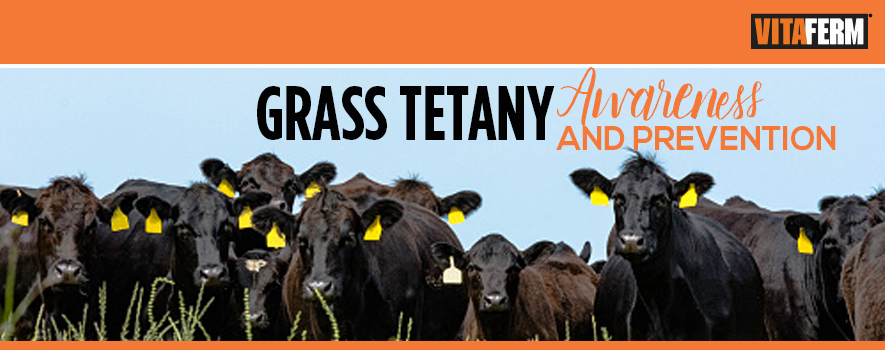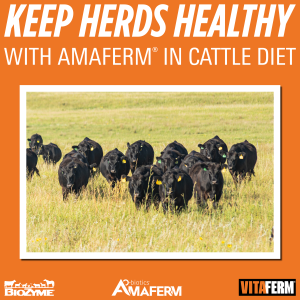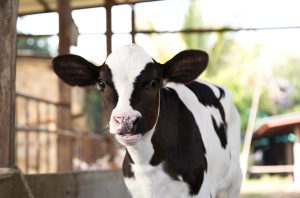
Following a rough, cold winter, it seems that spring is finally arriving. Temperatures are on the rise and pastures are beginning to green. For most of us this is a welcomed event that leads to less time in the calving barn, reduced time feeding and a few more hours of sleep. But as many cattlemen and our nutritionist, Kevin Glaubius, have pointed out, it is a very crucial time for producers to be aware of and prevent a condition known as grass tetany or wheat pasture poisoning.
Grass tetany occurs most frequently in the spring, following a period of cool temperatures. During this period the grass or cereal grains are immature and rapidly growing. This rapid growth rate followed by cool temperatures at night allow for the build up of potassium, reduced magnesium absorption, and ultimately critically low levels in the animals’ blood.
This syndrome is seen in almost all parts of the world, and primarily in mature, early lactation cows. However, it can also affect dry young cows and in some very rare cases, calves. Mature cows seem to be more susceptible to grass tetany because of their inability to mobilize magnesium from their bones to meet the need for homeostasis in the body fluids.
Signs of grass tetany include: nervousness, lack of coordination, muscle spasms and staggering, which may eventually lead to convulsions, coma and death. Early treatment from a veterinarian can save animals. However, to prevent problems before they start the implementation of a good mineral program can be the biggest factor in reducing grass tetany problems.
As the value of beef cattle continue to rise, managing this problem may be more economically significant than in the past. Choosing a high magnesium mineral during high risk periods, such as Concept•Aid Mag/S, or VitaFerm Cow-Calf Mag Mineral, can help limit any grass tetany risk. It is recommended to feed one of these high magnesium minerals several weeks before turning cattle onto lush pastures. A high magnesium mineral should be continued while cattle are on lush grass or until the threat of cool temperatures and high potassium forages subside.
To find out more about ways to prevent grass tetany in your herd contact your local VitaFerm dealer. If you have a nutrition question email support@biozymeinc.com.


